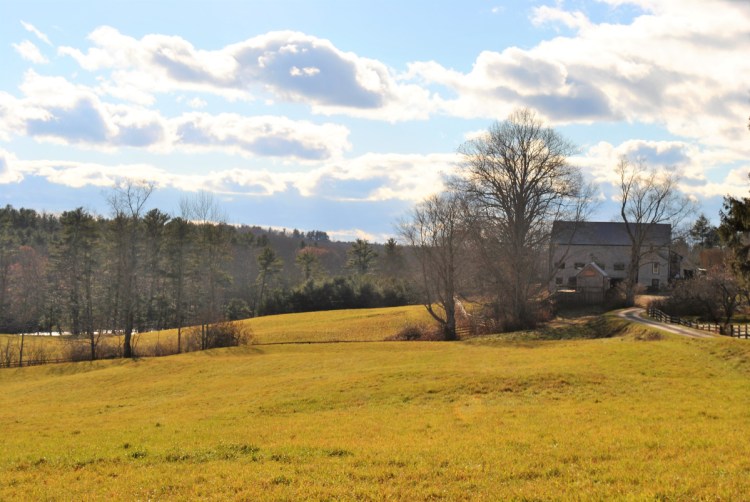SACO — The Ecology School plans to start work next spring on a new campus designed to be among the greenest projects in Maine.
The Ecology School was founded in 1998 and provides residential and day ecological education programs. For many years the school operated on space along the coast it leased from the Ferry Beach Association.
The school has purchased the 105-acre Riverbend Farm property at 184 Simpson Road in north Saco. The school’s office is operating from a 1794 farmhouse on the property, and there are plans to break ground in the spring on a dormitory and dining hall, with completion expected in spring 2020, said Drew Dumsch, director of The Ecology School.
The school will operate its 2019 residential programs at Poland Spring Resort in Poland while construction moves forward at Riverbend Farm.
The plan for construction includes a two-story dormitory that will be just under 9,000 square feet. The dormitory will be divided into three wings and will accommodate about 120 students, Dumsch said.
The proposed dining commons with a cafeteria that can accommodate 200 people would be about 6,900 square feet, Dumsch said.
The overall cost to acquire the farm, construct the buildings and get the property operational is about $12 million.
A “huge focal point” of the project at Riverbend Farm is that the buildings will meet Living Building Challenge criteria, Dumsch said.
The criteria are a green building certification program and sustainable design framework. The Living Building Challenge promotes itself on its website as “the world’s most rigorous proven performance standard for buildings.”
“We really want to raise the bar,” Dumsch said.
Dumsch said under the criteria, the school must produce more energy than it uses. The project will include solar panels on the dining commons and a “solar orchard” where solar panels will stand among trees and sheep, as well as rainwater harvesting and low-flow toilets.
Dumsch said under Living Building Challenge criteria, specific building material must be used.
“Every single board, every single coating, … every screw in the project has to be vetted for its environmental impact,” Dumsch said.
Dumsch said the school won’t be able to qualify for Living Building Challenge certification until it has been in operation for a year after the project and proved that it has met requirements for energy production.
“We not only have to talk the talk, we have to walk the walk,” he said.
The school had to ask the city for a contract zone in order for the project at Riverbend Farm to move forward, as city zoning did not allow schools at that location.
The project received criticism from some residents on Simpson Road, who argued that the project would not blend in with the rural landscape of the area.
Saco city councilors ruled in favor of the contract zone, which allows the school to construct two dormitories and a dining hall on the Simpson Road property.
In June, the city planning board approved the site plan for the project.
Riverbend Farm is under an agricultural easement with the Maine Farmland Trust, a statewide organization that protects farmland and supports farmers.
The Ecology School recently received a $25,000 donation from the Quimby Family Foundation, an organization committed to foster stronger relationships between people and nature.
“Through the construction of a remarkable place that embodies sustainability, models conservation, and promotes holistic human contact with nature, The Ecology School at River Bend Farm will strengthen its commitment to fostering environmental stewardship to its more than 12,000 yearly participants,” Quimby Family Foundation representatives said in a written statement.
Dumsch said The Ecology School is grateful for its many years at the Ferry Beach Association, which allowed it to rent space in the spring and the fall.
When it operates at its own location, the school will also be able to have summer programs, Dumsch said.
The new site will also give the school more space to plant vegetables to maintain its goal to provide locally sourced food in the dining hall. The school also plans to raise animals on the farm, harvest sugar maple sap for maple syrup and keep bees.
Liz Gotthelf can be contacted at 780-9015 or at:
egotthelf@journaltribune.com
Send questions/comments to the editors.



Success. Please wait for the page to reload. If the page does not reload within 5 seconds, please refresh the page.
Enter your email and password to access comments.
Hi, to comment on stories you must . This profile is in addition to your subscription and website login.
Already have a commenting profile? .
Invalid username/password.
Please check your email to confirm and complete your registration.
Only subscribers are eligible to post comments. Please subscribe or login first for digital access. Here’s why.
Use the form below to reset your password. When you've submitted your account email, we will send an email with a reset code.